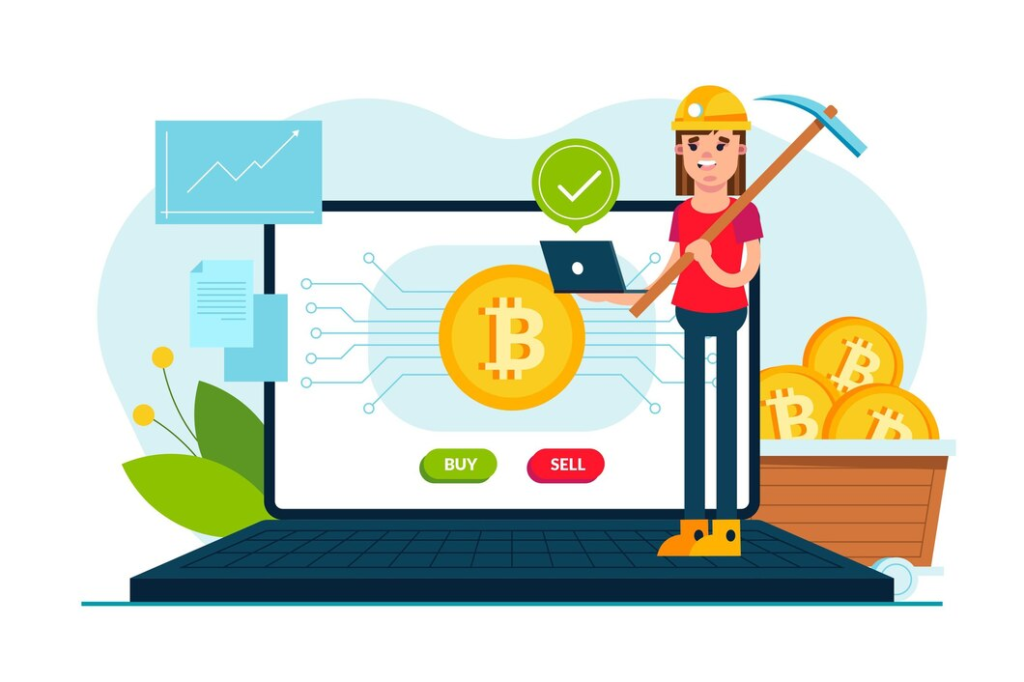This is one of the very common, though very expensive, mistakes believers in digital assets make. Since each transaction on a blockchain is irreversible, users lose their money for good if they send cryptocurrencies to the wrong address. This can be a simple typo error, malware attack, or copying of the wrong address—all of which cause huge financial losses to the sender and heavy frustration.

Along with these problems to be mitigated, a number of platforms and tools have been developed so as to enhance security and accuracy in carrying out cryptocurrency transactions. For example, wallet providers like MetaMask, Trust Wallet, and Coinbase have developed features related to address book management, transaction previews, confirmation prompts, and other features that help the users not to missend their cryptocurrency due to recipient-address-based mistakes. Blockchain explorers and transaction tracking tools enable one to keep an eye on the transactions and check the details of various transactions.
The risk of mistakenly sending cryptocurrency to the wrong address can be significantly reduced by taking precautionary measures and using advanced tools. Wallets that have built-in safety features, like an address book, allow frequent addresses to be saved and selected for use. This reduces the potential for mistakes to occur, providing the final check in a transaction preview before funds are sent, thus ensuring the recipient address is correct.

Some blockchain networks and platforms are currently developing solutions that would allow the restoration of lost funds. For example, Ethereum’s EIP-3074 proposal would enable abstraction of transactions in such a way that it allows maximum flexibility for transaction management and recovery mechanisms. Joining the support communities is also an important measure for getting updates on best practices and new developments that will be helpful in effectively avoiding and addressing this problem.
While in a case of mistaken crypto sending, the first response might be to contact wallet support and seek help from blockchain explorers, there could still be some sort of chance for retrieval. However, an essential tenet would be prevention through proper verification and using safe wallet features which are friendly to users.
Cases In Which Crypto Is Sent to the WRONG Address
Case 1: Active Wallet
Here, you could have sent money to an active wallet. This means that sending the money transferred the ownership of the money to the recipient. Well, you will only get your money back if the recipient can be reachable and willing to send your money back to you.
The best thing to do would be to reach out through the right channels should the address be one of an identified individual or entity.
Case 2: Burns in Address or Dead Wallet
The burn address is manually disabled; the address is capable of receiving coins, but you cannot call it or eventually utilize it in transactions. If any cryptos are sent to a burn address, the funds are lost for good, or in other words, permanently.
Dead wallets are accounts that have not been used in years. Maybe the owner lost the address, or the owner passed away before disclosing his wallet details, making it impossible to access. Money sent is lost effectively.

Case 3: Non-existent Address
Third possibility: the address to which you sent your assets does not exist, that is, it was not really generated or activated at the moment. As you filled in a valid address structure according to blockchain, then the transaction is validated, but the recipient’s address does not exist.
In theory, everyone who makes a wallet on the same network and gets that address can also access the funds sent to the account. The chances of that happening are very slim since it would mean somebody randomly made the same address.
Case 4: Wrong Blockchain
Cross-blockchain cryptocurrency sending depends on the similarity of the wallet address structure in sending and receiving blockchains. For example, it will not be possible to damage the sent value directly on the Bitcoin chain to the Ethereum chain, or vice versa, due to the fundamentally distinct blockchain and address structures.
In those cases, the transaction will not process, and the old wallet will have your funds. Submitting tokens to a similarly styled address blockchain; a blockchain network with a similar address structure raises a different set of issues.

Case 5: EVM-Compatible Networks
This is shared by the networks like Ethereum, which work on the model of EVM-based Layer 1 or Layer 2, so to speak, due to the abovementioned structural similarities. Recap: if accidentally tokens meant for Ethereum get sent to Polygon, then those tokens are not lost because all that one needs to do is switch to the Polygon network. There, all the tokens that you could access will be available to you.
This is because your Ethereum address actually ‘lives’ on every other EVM-compatible network, and hence the same private key can be used to access the same address on all those networks.
Case 6: Non-EVM Network with Similar Address Structure
The worst that can happen is that you err in the routing, mistakenly send assets to a non-EVM network whose, for some strange and unlucky reason, the address structure is quite similar to the EVM one. If your transaction actually goes through, there’s a pretty good chance that your tokens—well, they went down the drain. The reason is that these chains use different technologies, and the same mnemonic on both networks won’t give you an address that’s exactly similar to both of the networks.
One never knows what will happen; he can either reverse wrongly sent cryptocurrency or lose it due to different factors, such as the status of the recipient wallet activity, compatibility of blockchain networks, or similarity in the construction of the address. In this regard, before making any mistakes, every precaution such as possible double-checks with the recipient’s address and network details must be taken into consideration regarding every transaction.
